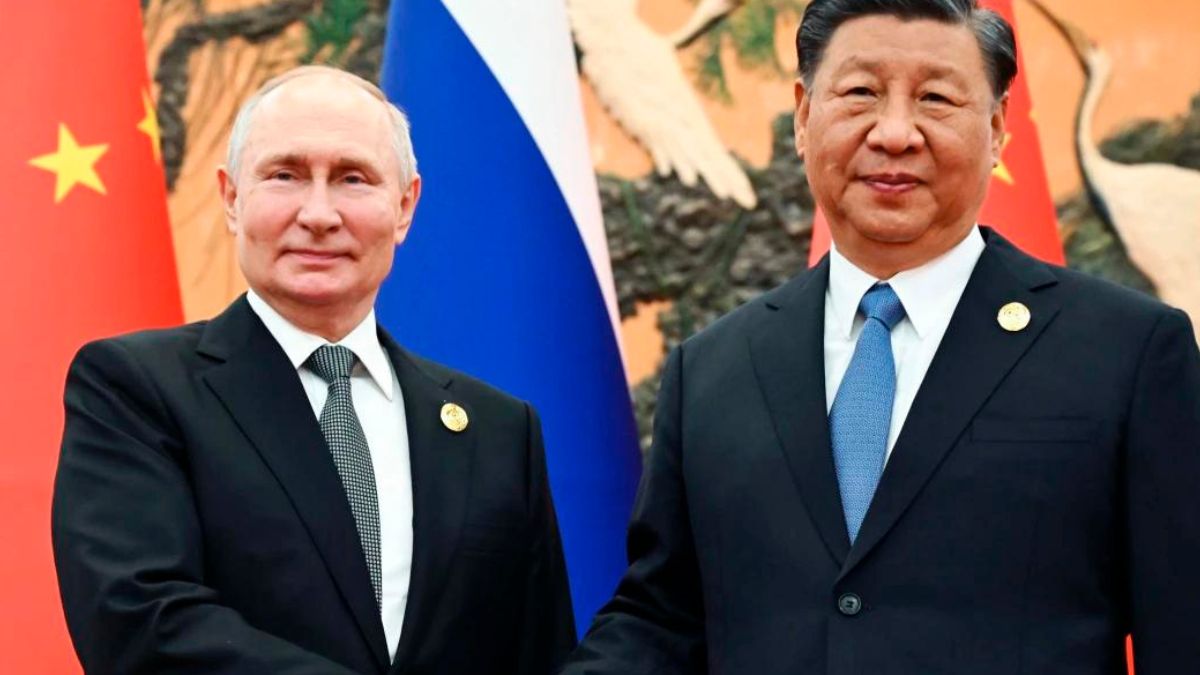In a significant revelation in an open forum, a high-ranking Pentagon official has said that US believes Russia is preparing to deploy a nuclear weapon in space and Washington is concerned as it has not been able to dissuade them from doing so.
According to the South China Morning Post report, during testimony to the House Armed Services Committee on Wednesday, Assistant Defence Secretary for Space Policy John Plumb said that both China and Russia have effectively “militarised” space.
Highlighting Russia’s activities, Plumb expressed apprehension over Moscow “developing a anti-satellite capability related to a new satellite carrying a nuclear device that Russia is [also] developing". He said the US is concerned about being “unable to convince them otherwise to ultimately fly a nuclear weapon in space”, added the report.
Plumb said such an “indiscriminate” weapon would endanger all satellites and critical global infrastructure such as communication networks, scientific endeavors, meteorological monitoring, agricultural systems, commercial operations, and national security apparatuses —pillars upon which we all rely.
He also cautioned that it could render low Earth orbit “unusable”.
Responding to a lawmaker’s question of whether that could last a year, South China Morning Post report quoted Plumb as saying, “I believe it could”.
Asked if the threat was looming, Plumb said it was “imminent in the way that we should have to worry about it right now”.
Last week, Russia had vetoed a UN Security Council resolution urging nations to halt a potentially perilous nuclear arms competition in outer space, branding it as “a dirty spectacle”.
The proposed resolution, backed by the US and Japan, aimed to compel all nations to refrain from developing or positioning nuclear weapons or any other mass destructive armaments in space, actions already prohibited under a 1967 global treaty.
“Today’s veto begs the question: Why? Why, if you are following the rules, would you not support a resolution that reaffirms them? What could you possibly be hiding,” The Guardian had quoted US ambassador to the UN, Linda Thomas-Greenfield, as saying after the vote.
Russia’s UN Ambassador, Vassily Nebenzia, dismissed the resolution as “absolutely absurd and overly politicised,” arguing that it fell short of adequately prohibiting all forms of weaponry in space.
The Security Council, comprised of 15 members, witnessed a vote with 13 in favor, Russia in opposition, and China abstaining.
Russia and China tabled an amendment urging all nations, particularly those possessing significant space capabilities, to permanently prevent the deployment of weapons in outer space and the potential use of force in that domain.
However, the United States objected to the amendment. Following the vote, Nebenzia questioned, “We want a ban on the placement of weapons of any kind in outer space, not just WMDs [weapons of mass destruction]. But you don’t want that. And let me ask you that very same question. Why?”
In a statement issued by the White House on 24 April, US national security adviser Jake Sullivan said that Moscow “would not have vetoed this resolution” if Russian President Vladimir Putin truly had no intentions of deploying nuclear weapons in space.
Plumb called the 1960s – when the Soviet Union and the US each conducted a high-altitude nuclear test – a “different time” when testing was done to “learn things”. The tests damaged all satellites and rendered those orbits unusable “for a time”, he added.
Plumb clarified that the outer space treaty does not prohibit weapons in space, but refers to weapons of mass destruction, and asserted that Russia and China have “militarised” space.
“We can say that Russia is deploying and developing prototype kinetic weapons in space,” South China Morning Post quoted him as saying.
“We can see that China has developed robotic satellites that are really probably dual use – they can be used for non-military purposes but they can clearly also be used for military purposes like grappling a satellite,” he added.
With inputs from agencies


)




)
)
)
)
)
)
)
)